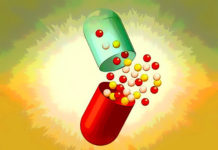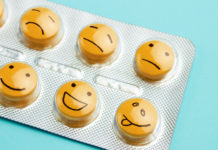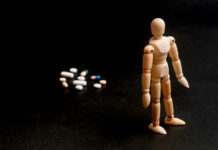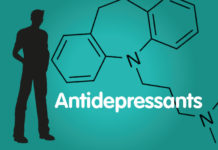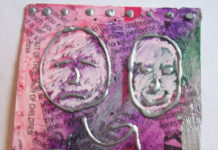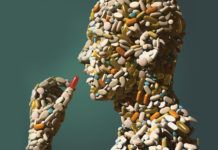Starvation: What Does it Do to the Brain?
The Minnesota Starvation Experiment was conducted at the University of Minnesota during the Second World War. Prolonged semi-starvation produced significant increases in depression, hysteria and hypochondriasis, and most participants experienced periods of severe emotional distress and depression and grew increasingly irritable. It really should not be a surprise to this audience that the brain’s functioning is highly compromised when the body is being starved of food (and nutrients). What we wonder is whether eating a diet of primarily highly processed foods low in nutrients has similar effects.
Psychiatry, Fraud, and the Case for a Class-Action Lawsuit
For decades, psychiatry committed medical fraud when it told the public that antidepressants fixed a chemical imbalance in the brain.
My Story and My Fight Against Antidepressants
I’d like to share a bit about what happened to me after being placed on these medications, and how I successfully got off. Until recently, I was embarrassed to talk about my personal experiences publicly, as I’m a professional who specializes in anxiety and depression. Today, medication free, I feel better than ever before, and I am now on a mission to help my current clients get off medications, and to inform others through my writing about the dangers and pitfalls of starting antidepressants.
Antidepressant-Induced Mania
It is generally recognized in antipsychiatry circles that antidepressant drugs induce manic or hypomanic episodes in some of the individuals who take them. Psychiatry's usual response to this is to assert that the individual must have had an underlying latent bipolar disorder that has "emerged" in response to the improvement in mood. The problem with such a notion is that it is fundamentally unverifiable.
Intermittent Explosive Disorder: The ‘Illness’ That Goes On Growing
According to the APA, intermittent explosive disorder is characterized by angry aggressive outbursts that occur in response to relatively minor provocation. This particular label has an interesting history in successive editions of the DSM. Psychiatry needs illnesses to legitimize medical intervention. And where no illnesses exist, they have no hesitation in inventing them. And since they invented them in the first place, they have no difficulty in altering them to suit their purposes. Of course, almost all the alterations are in the direction of lowering the thresholds, and thereby increasing the prevalence.
What is a Warm Line and What Should I Expect When I Call One?
A warm line is an alternative to a crisis line that is run by “peers,” generally those who have had their own experiences of trauma that they are willing to speak of and acknowledge. Unlike a crisis line, a warm line operator is unlikely to call the police or have someone locked up if they talk about suicidal or self-harming thoughts or behaviors. Most warm line operators have been through extreme challenges themselves and are there primarily to listen.
When Homosexuality Came Out (of the DSM)
With a diagnosis of schizophrenia, if internalized, comes the erosion of personhood, lowered self-esteem, shattered dreams, and a sense of disenchantment. The psychiatrist Richard Warner has even suggested that those who reject the diagnosis of severe mental illness may have better outcomes as they retain the right to construct their own narrative of personhood and define what really matters for them. Despite public education campaigns (or perhaps because of them), the stigma of mental illness is as enduring as it was 50 years ago.
Reflections on Being a Therapist
Three-and-a-half years ago I quit my career as a psychotherapist. I’d done it for ten years in New York City and had given it my all. It was a career that chose me, loudly, when I was 27 years old. I learned a huge amount from it and I believe I was helpful to a lot of people. It also represented a vital stage in my life. But then the time came to leave. That also came as a sort of revelation.
Holistic Recovery From Schizophrenia: A Mother and Son’s Journey
I am a mother of a son who was given a diagnosis of schizophrenia in December 2003, a son who is doing well today...
Herbs, Supplements, Foods That Can Aid in Withdrawal Symptoms
When one is coming off of psychiatric pharmaceuticals, it's common to experience withdrawal induced anxiety, panic and psychosis. Here are some tips to help calm your body.
Antidepressant-Induced Mania: When My Mind Became a Literal Hell
The amount of anxiety I felt on these medications — and for a couple of years after — was unfathomable. I felt as though I was trapped in an air-tight vat, constantly gasping for breath. And my thoughts were guided by my state of constant worry and panic.
Carrie Fisher: Bipolar Meds and Heart Disease
Carrie Fisher recently died of a heart attack at age 60. How likely was it that her heart attack was caused by her psych meds? Or that her psych meds increased her risk of death once the heart attack happened?
Do Antidepressants Work? A People’s Review of the Evidence
After a meta-analysis of RCTs of antidepressants was published in Lancet, psychiatry stated that it proved that "antidepressants" work. However, effectiveness studies of real-world patients reveal the opposite: the medications increase the likelihood that patients will become chronically depressed, and disabled by the disorder.
Suicide in the Age of Prozac
During the past twenty years, the American Foundation for Suicide Prevention and American psychiatry have adopted a "medicalized" approach to preventing suicide, claiming that antidepressants are protective against suicide. Yet, the suicide rate in the United States has increased 30% since 2000, a time of rising usage of antidepressants. A review of studies of the effects of mental health treatment and antidepressants on suicide reveals why this medicalized approach has not only failed, but pushed suicide rates higher.
Why the Rise of Mental Illness? Pathologizing Normal, Adverse Drug Effects, and a Peculiar...
In just two decades, pointing out the pseudoscience of the DSM has gone from being an “extremist slur of radical anti-psychiatrists” to a mainstream proposition from the former chairs of both the DSM-3 and DSM-4 taskforces and the director of NIMH. In addition to the pathologizing of normal behaviors, another explanation for the epidemic — the adverse effects of psychiatric medications — is also evolving from radical to mainstream, thanks primarily to the efforts of Robert Whitaker and his book Anatomy of an Epidemic. While diagnostic expansionism and Big Pharma certainly deserve a large share of the blame for this epidemic, there is another reason.
Withdrawal from Antidepressants
A review of the scientific literature related to withdrawal from antidepressants: mechanism of action; long-term effects of exposure to antidepressants; discontinuation syndromes; relapse upon discontinuation; tapering protocols.
Rigorous Study Finds Antidepressants Worsen Long-Term Outcomes
A new study conducted by Jeffrey Vittengl at Truman University has found that taking antidepressant medications resulted in more severe depression symptoms after nine years.
An FDA Whistleblower’s Documents: Commerce, Corruption, and Death
In 2008, a reviewer of psychiatric drugs at the FDA, Ron Kavanagh, complained to Congress that the FDA was approving a new antipsychotic that was ineffective and yet had adverse effects that increased the risk of death. Twelve years later, a review of the whistleblower documents reveal an FDA approval process that can lead to the marketing of drugs sure to harm public health.
“Three Identical Strangers” and the Nature-Nurture Debate
Three Identical Strangers is a riveting film describing the story of identical triplets separated at six months of age and reunited in early adulthood. Their story provides no evidence in support of the genetic side of the nature-nurture debate, but it does supply some evidence in favor of the environment.
The Year I Lost Everything, Psychiatry Offered Nothing
After a failed suicide attempt following my son's death, New York State incarcerated me in a mental institution for 21 days. The environment was degrading, stultifying, and downright depressing.
55 Steps to Informed Consent
55 Steps is a new film based on a true story that centers around two women: Collette, a lawyer with a tendency to work long hours, and Eleanor, who has spent far too much time incarcerated in hospitals. Over the course of five years, Collette fights for Eleanor’s right to choose whether or not she takes psychiatric drugs. This film is imperfect, but its importance can’t be ignored.
A Short History of Tardive Dyskinesia: 65 Years of Drug-Induced Brain Damage That Rolls...
Psychiatry has long turned a blind eye to the full scope of harm associated with TD. New TD drugs "work" by further impairing brain function.
The STAR*D Scandal: Scientific Misconduct on a Grand Scale
The American Journal of Psychiatry Needs to Retract Study That Reported Fraudulent Results
Jordan B. Peterson’s Support of Corporal Punishment for Children: A Critique
In his book 12 Rules for Life, supposedly based on "cutting-edge research," Jordan Peterson attempts to justify the hitting of children as a form of discipline. But Peterson does so without citing a single study to support his view. In fact, this entire section of the book is bereft of any reference to any research supporting the effectiveness of corporal punishment.
A History of Pernicious Anemia and Psychiatric Misdiagnosis
Katrina Burchell, chief executive officer of the Pernicious Anaemia Society, writes about the history of pernicious anemia, which produces symptoms that are often misdiagnosed...



